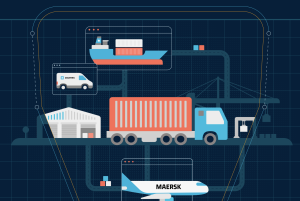 Multi award winning global entrepreneur and strategist, and advisor to Presidents and Heads of State across the world, H.E Prof. Dr. Ambassador Tal Edgars, outlines in a two-part article, the huge challenges facing supply chains in Africa post lockdowns and what must be done to fix the broken links.
Multi award winning global entrepreneur and strategist, and advisor to Presidents and Heads of State across the world, H.E Prof. Dr. Ambassador Tal Edgars, outlines in a two-part article, the huge challenges facing supply chains in Africa post lockdowns and what must be done to fix the broken links.
The impact of the Covid pandemic on the global supply chains and more so those in Africa, has prompted governments around the world to look at ways to fix the broken links.
In Africa, the launch of African Continental Free Trade Area (AfCFTA), has provided the continent with new opportunities to strengthen its regional supply chain. There were massive breakdowns and breakages in key links in global supply chains during and after the pandemic, with issues including, among many other things, route congestion and blockages, manufacturing shutdowns, a deficit of skilled labour, a global shortage of key logistics components including shipping containers, a lack of space in warehouses, a spike in transportation costs and substantially increased demand for goods around the world, post lockdown.
As a result, countries have been looking at ways to relink broken chains. In February 2021, US President Biden addressed this issue by signing an Executive Order on America’s supply chains. He ordered federal agencies to review and identify vulnerabilities in key US supply chains and develop policies to ensure they would be more resilient to future shocks. Similarly, in Europe, the European Union Policy Department for External Relations issued a report on Post Covid-19 value chains: Options for Reshoring Production Back to Europe in a Globalised Economy.
In 2020, the African Union Peer Review Mechanism 2020 published a report on Africa’s governance response to COVID-19, which highlighted regional supply chain challenges and overreliance on foreign trade and suggested that the continent needed to boost its manufacturing capacity to build a strong African supply chain that could not be weakened by global blockages.
I hold the view that before the pandemic, supply chains in Africa were already under pressure due to inadequate infrastructure, corruption and security issues, poor trade logistics, over-reliance on imports, onerous regulatory requirements, and complex customs procedures.
I refer to a report – A Licence to be Bold: Transforming Industrials – which outlined areas of post-pandemic focus for supply chains in the IMT sector, which included being able to adapt to new markets, embrace digitalisation and enable the disruption-proofing of supply chains. The report further noted that disruption arising from COVID-19 accelerated trends already apparent in the industrials market, particularly digitalisation and trade volatility, and transformation has now gravitated from a “nice to have” to a strong and bold “must have”– a clear necessity.
Due to the global supply chain disruption, many African countries have begun looking at ways to improve their manufacturing capacity so that they can produce local components that don’t need to be imported in order to boost local trade within the continent. This then begs the question: what would any ardent African-focused and forward-looking puritan demand of the new supply chain developments?
Read Part 2: Supply Chain in Africa Success Factors
By H.E Prof. Dr. Ambassador Tal Edgars


























